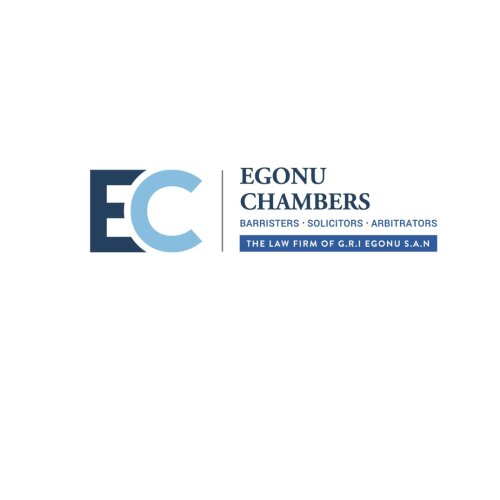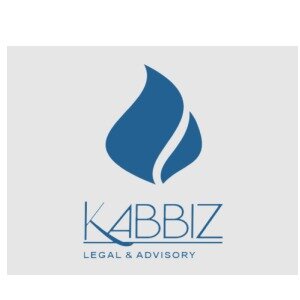Best E-commerce & Internet Law Lawyers in Onitsha
Share your needs with us, get contacted by law firms.
Free. Takes 2 min.
List of the best lawyers in Onitsha, Nigeria
About E-commerce & Internet Law in Onitsha, Nigeria
E-commerce and Internet Law in Onitsha, Nigeria, is a rapidly evolving field as the digital economy expands in the region. This area of law encompasses a wide range of legal issues related to online business activities, digital contracts, consumer protection, data privacy, intellectual property rights, and cybersecurity. Due to the unique legal environment in Nigeria and the increasing adoption of internet-based commerce, understanding the legalities associated with e-commerce is crucial for businesses and consumers alike. Legal frameworks such as the Nigeria Data Protection Regulation (NDPR) and the Cybercrimes Act are pivotal in shaping the e-commerce landscape in Onitsha.
Why You May Need a Lawyer
There are several common situations where individuals or businesses may require legal assistance in e-commerce and Internet Law:
- Setting Up an E-commerce Business: Legal guidance is essential for compliance with regulatory requirements, drafting terms and conditions, and other foundational legal documents.
- Consumer Disputes: Legal help might be needed in resolving issues related to product misrepresentation, delivery failures, or breach of contract.
- Intellectual Property Infringements: Businesses may need protection against unauthorized use of their trademarks, copyrights, or patents.
- Data Protection and Privacy: Ensuring compliance with data protection regulations can help avoid heavy penalties.
- Cybersecurity Issues: Advice might be needed to address data breaches, hacking incidents, or other cybersecurity threats.
Local Laws Overview
Understanding the local laws relevant to e-commerce and Internet activities is crucial for conducting business legally in Onitsha. Key legal provisions include:
- Nigeria Data Protection Regulation (NDPR): This regulation governs the processing and handling of personal data, ensuring individual privacy rights are protected.
- Cybercrimes (Prohibition, Prevention, etc.) Act: This law is designed to combat cybercrime and protect national information infrastructure.
- Electronic Transactions Act (Awaiting Enactment): While yet to be enacted, this act aims to provide a legal framework for e-commerce transactions and electronic communications.
- Consumer Protection Framework: Local consumer protection laws safeguard consumer interests, ensuring fair practices in electronic transactions.
Frequently Asked Questions
1. What is E-commerce Law?
E-commerce Law refers to the legal principles that govern online commercial transactions, including contracts, consumer protection, digital marketing, and data privacy.
2. What are the legal requirements for starting an online business in Onitsha?
You need to register your business with the Corporate Affairs Commission (CAC), comply with tax regulations, and ensure that your website terms and privacy policies align with Nigerian laws.
3. How does the NDPR affect my online business?
The NDPR mandates that businesses handle and process personal data responsibly, safeguarding privacy rights and implementing adequate data protection measures.
4. Are electronic signatures legally recognized in Nigeria?
Yes, electronic signatures are recognized under Nigerian law, but the validity often depends on the context and whether all parties consent to their use.
5. What should I do if my online business is accused of copyright infringement?
Seek legal advice to address the accusation, understand the merit of the claim, and explore potential defenses or settlements.
6. How can consumers address grievances against e-commerce platforms?
Consumers can file complaints with consumer protection agencies or seek legal recourse through arbitration or small claims courts.
7. What cybersecurity measures should online businesses implement?
Businesses should employ technical safeguards such as firewalls, encryption, regular security audits, and staff awareness training to mitigate cybersecurity risks.
8. Is customer consent required before collecting personal data?
Yes, obtaining informed consent is a fundamental requirement under data protection regulations before collecting or processing personal data.
9. What are the consequences of data breaches for businesses in Onitsha?
Data breaches can result in legal penalties, reputational damage, and financial loss, emphasizing the need for strong data security practices.
10. How does e-commerce law apply if I sell internationally?
International sales may involve compliance with varying regulatory standards and legal obligations in different jurisdictions, often requiring expert legal guidance.
Additional Resources
For further guidance, you may consider reaching out to the following resources:
- Consumer Protection Council (CPC): Offers assistance in consumer disputes and protection matters.
- Nigerian Communications Commission (NCC): Provides regulations and guidelines for online business operations.
- Nigeria Internet Registration Association (NIRA): Manages policies for internet governance and domain registrations.
- Onitsha Chamber of Commerce: Can provide local business support and networking opportunities.
Next Steps
If you require legal assistance in e-commerce and Internet Law, consider the following steps:
- Consult with a lawyer specializing in Internet and Technology Law.
- Gather all relevant documents and information related to your legal issue.
- Schedule initial consultations to discuss your situation and explore legal strategies.
- Stay informed about local and international legal developments affecting e-commerce.
Lawzana helps you find the best lawyers and law firms in Onitsha through a curated and pre-screened list of qualified legal professionals. Our platform offers rankings and detailed profiles of attorneys and law firms, allowing you to compare based on practice areas, including E-commerce & Internet Law, experience, and client feedback.
Each profile includes a description of the firm's areas of practice, client reviews, team members and partners, year of establishment, spoken languages, office locations, contact information, social media presence, and any published articles or resources. Most firms on our platform speak English and are experienced in both local and international legal matters.
Get a quote from top-rated law firms in Onitsha, Nigeria — quickly, securely, and without unnecessary hassle.
Disclaimer:
The information provided on this page is for general informational purposes only and does not constitute legal advice. While we strive to ensure the accuracy and relevance of the content, legal information may change over time, and interpretations of the law can vary. You should always consult with a qualified legal professional for advice specific to your situation.
We disclaim all liability for actions taken or not taken based on the content of this page. If you believe any information is incorrect or outdated, please contact us, and we will review and update it where appropriate.










